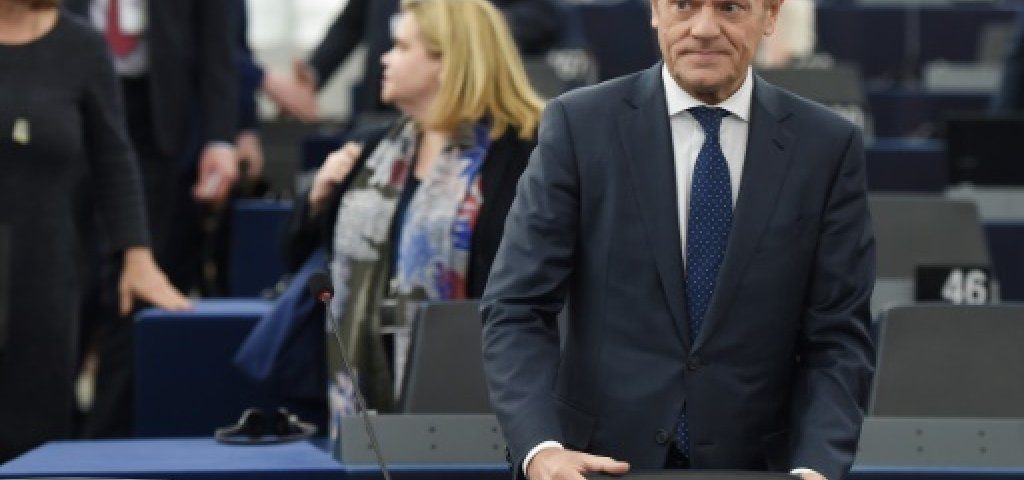
NASA ALERT: International space station INFESTED with bacteria which could harm astronauts
April 8, 2019
Chelsea star Eden Hazard asked about joining Real Madrid… this is what he said
April 9, 2019
European capitals are increasingly worried that ongoing Brexit chaos will carry a political and economic cost on the continent, but despite warnings from Paris, most seem ready to accept a lengthy postponement to Britain’s departure.
British Prime Minister Theresa May still has meetings with the leaders of France and Germany before Wednesday’s EU summit, the last before the next notional Brexit deadline at midnight on Friday.
May has said she will ask for Brexit to be delayed only until June 30, but officials and observers here expect the other 27 EU leaders to study the idea of a longer “flexible” extension into 2020.
As floated by EU Council president Donald Tusk’s office last week, the delay could last up to a year but be cut short if May manages to get an orderly withdrawal deal past UK lawmakers.
Tusk’s Council represents EU member governments in Brussels, and he will host Wednesday’s emergency Brexit summit — but officials were clear he was proposing the “flextension” on a personal basis.
“It’s Mr Tusk’s position, not the position of the council,” one diplomatic source told AFP, after the former Polish leader’s leaked initiative caught the other 27 EU capitals by surprise.
In Paris, a diplomatic source dismissed Tusk’s suggestion as a “clumsy trial balloon”, as French President Emmanuel Macron’s government continued to insist May must present a “credible plan” for orderly divorce.
In public at least, France has struck a more strident tone in demanding British commitments in return for further extensions to a Brexit process that was due to have come to an end on March 29.
Most of the 27 insist, for example, that Britain must be ready to take part in the European Parliament elections that start on May 23 if it is still a member, and May has reluctantly begun contingency planning for a vote.
But other countries such as Germany and, most notably Ireland, are pushing for London to be given space to come up with a solution to avert a cliff-edge no-deal Brexit they fear would cause economic and legal chaos.
“We’d need a strong political reason to delay,” insisted a diplomat from the hardline camp, suggesting that London undertake to hold a general election or a second Brexit referendum to break the political logjam.
“Otherwise, why would the European Union itself take on such a responsibility?”, the source demanded, pointing to the risks posed by indefinite Brexit uncertainty or British eurosceptic mischief-making.
Many EU capitals share the concern that an endless series of inconclusive postponements could undermine the election, the formation of a new European Commission after the vote or decision-making within EU institutions.
– Veto ‘extremely unlikely’ –
Nevertheless, “no-one is really opposed to Mr. Tusk’s flextension,” another diplomat who has attended high-level talks in Brussels between the 27 non-British representative delegations told AFP.
“This option could be useful for May,” she said, arguing that a flexible delay would allow the British premier to tell her own hardline eurosceptics that they can leave Europe any time they like, just by approving the deal.
Ireland’s Prime Minister Leo Varadkar, who was meeting EU negotiator Michel Barnier on Monday ahead of the summit, said at the weekend he thought it “extremely unlikely” that any member state would veto a Brexit delay.
And thus far in the lengthening negotiations, Brussels has stood in strong solidarity with the position of Ireland, a continuing member that stands to lose out greatly in the event of its neighbour crashing out without a deal.
Diplomats here, however, admit that they’re following the news from London “three times a day” and that trust in May’s ability to deliver on her undertakings is slipping.
“The next few days or hours are going to be critical,” Spanish Foreign Minister Josep Borrell said Monday. afp




